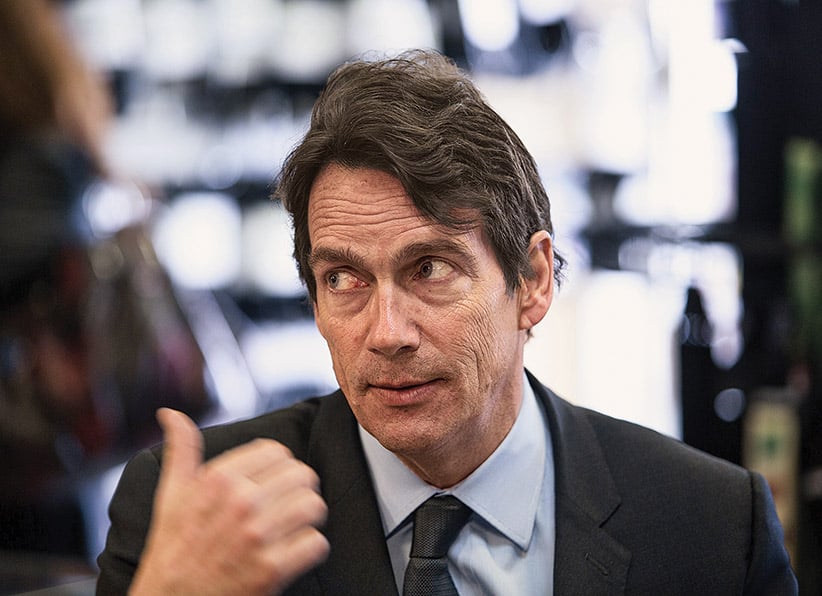Why a struggling Parti Québécois is bad for Quebec’s democracy
Pierre-Karl Péladeau is, predictably, stumbling toward the exit, while Philippe Couillard fumbles his way to undeserved success
Share

Among the few political certainties in Quebec, the pattern and pace by which the Parti Québécois implodes is perhaps the most enduring. Since 1976, when the sovereignist party first took power, its subsequent defeats are for the most part slight variations of the same process: PQ members become restive, PQ members toss leader, PQ members elect new leader, PQ members and caucus afford him or her the kind of bright-eyed adoration usually reserved for saints and visiting royalty. PQ leader loses election. PQ members become restive. And the whole thing starts again.
Suffice to say, it is awful for the party and continuously devastating for the sovereignist movement—an odd thing, since it is the very reason the party exists. And before federalists inside and beyond Quebec cheer, it is important to remember that is awful for Quebec’s democracy as a whole.
There is a reason why political parties like to limit these sorts of leader-eating meltdowns. They take up an incredible amount of time, oxygen and political capital. Yet because of its singular goal of sovereignty, and its inability to attain it, the Parti Québécois is doomed to repeat them every losing election. The net result of this, of course, is a free ride for the Quebec Liberal Party, which can waltz into and then remain in power against an ever-weakening opposition.
Take Philippe Couillard’s current government, for example. Or actually, don’t. Under normal democratic circumstances, the governing Liberals should be somewhere between between panic and reckoning. It is coming out of a series of highly unpopular austerity measures targeting education and health care. The province has one of the highest illiteracy rates in the country. Last fall, a man died of internal bleeding at a Montreal hospital because a cost-cutting campaign prevented an on-site surgeon from performing the necessary operation.
Montreal, Quebec’s largest city, has one of the highest unemployment rates in the country. The city’s police, and many others, wander around in clown pants, a pressure tactic resulting from a festering labour dispute that has lasted nearly two years.
These are the types of things that should stick like napalm to any government, and have roughly the same incendiary effect. Yet the Couillard government continues to coast along relatively unscathed, with an eight-point lead on the Parti Québecois, according to a recent poll.
There is a familiar reason for this rather gobsmacking Liberal honeymoon: the opposition Parti Québécois. It’s been less than a year since Pierre Karl Péladeau became leader, during which time the businessman and media maven has moved so efficiently from “Adoration from PQ members and caucus” to “PQ members get restive” that he skipped over the “PQ leader loses election.”
Given the state of his party, one wonders whether he’ll even make it to the next election in 2018. Stéphane Bédard, one of the more effective PQ MNAs, left the party last October, after a barely hidden power struggle with Péladeau. PQ Martine Ouellet, one of the more respected progressive voices in the party, has criticized Péladeau’s leadership. Longtime strategist and speechwriter Stéphane Gobeil left earlier this month for the CAQ, Quebec’s second opposition party. Michel David, columnist with the nationalist Le Devoir and a wholly reliable reader of Quebec’s political tea leaves, stopped just short of actually calling Péladeau litigious, thin-skinned and mean-spirited.
Finally, the coup de grace. Former PQ MNA and party stalwart Louise Beaudoin affirmed in words what David wrote in print. “Péladeau needs to learn about politics,” she told a Quebec City newspaper recently. This, about a party leader who has been a politician for over two years.
In short, we are on the brink of yet another lurch in the Quebec political cycle. You’ll notice, as I did, that the Liberals have gone relatively easy on Péladeau—or ignored him outright—since before the Christmas holidays. Not one year ago, as a rich businessman and avowed sovereignist, Péladeau was a mortal threat to the Liberal brand. Now, the Liberals want to keep him around, if only to prolong the PQ’s misery.
Quebec, when in Liberal hands, doesn’t have an official opposition. It has a soap opera distraction. As such, the Liberals win too many elections on too little merit, and have a totally undeserved sense of self-entitlement as a result. Firmly entrenched in power, with the messy business of austerity behind him, Couillard will backfill the latter half of his mandate with tax cuts, spendy program initiatives and other good-news announcements in anticipation of the 2018 election.
If history is any indication—and in Quebec, it usually is—this cynical exercise will work better than anywhere else, because the alternative is that much worse. Pity.